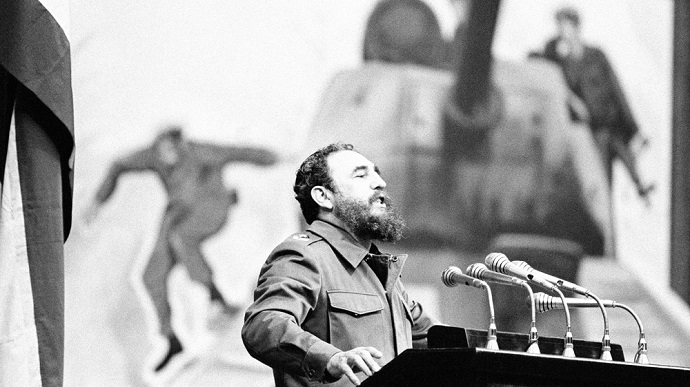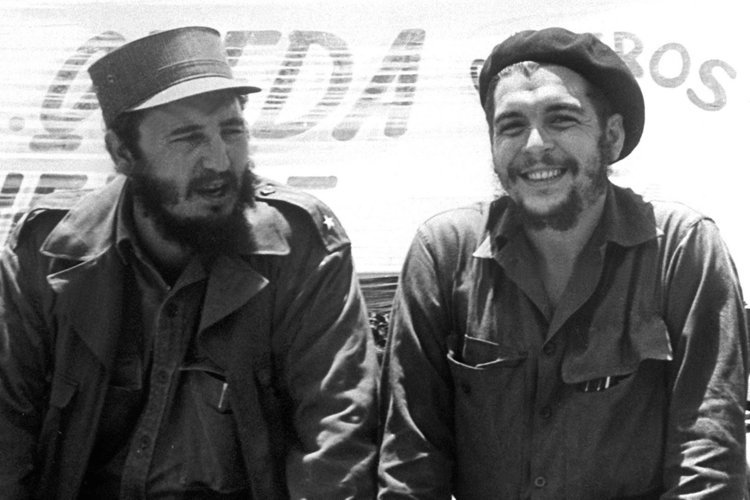Fidel Castro, Cuban Revolutionary who defied United States for more than 50 years, dies at 90
The announcement quoting Raul Castro, his brother and current president, was made on Cuban state television.
Fidel Castro became a towering international figure and most emblematic world leaders of the 20th century, far exceeding from what have been expected from the head of state of a Caribbean island nation of 11 million people. Fidel Castro had held onto power longer than any other living national leader except Queen Elizabeth II.
For five decades, he worked to turn the island nation into a place of equality and social justice. His government produced tens of thousands of doctors and teachers and some of the lowest infant mortality and illiteracy rates in the Western hemisphere.
Castro’s reign over the island-nation 90 miles from Florida was marked by the U.S.-backed Bay of Pigs invasion in 1961 and the Cuban Missile Crisis a year later that brought the world to the brink of nuclear war. The bearded revolutionary, who survived a crippling U.S. trade embargo as well as dozens, possibly hundreds, of assassination plots, died eight years after ill health forced him to formally hand power over to his younger brother Raul, who announced his death late Friday on state television.
Castro’s speeches, lasting up to six hours, became the soundtrack of Cuban life and his 269-minute speech to the U.N. General Assembly in 1960 set the world body’s record for length that still stood more than five decades later.

Fidel Castro was one of the most powerful world leaders of the 20th century, who alongside Che Guevara, swept to power in a revolution in 1959, ousting the pro-US regime.
“Fidel is the father of all Cubans,” said Euxiquio Del Toro, 57, a farmer in Granma province.
His “struggle for good and equality for all” makes him “one of the great ones. Fidel is like a myth. He’s like Che,” said Del Toro, referring to the late Argentinean revolutionary Ernesto “Che” Guevara.
The cigar-smoking, bearded Cuban leader’s influence lasted over the terms of 11 U.S. presidents. At the end of 2014, President Barack Obama moved to normalize relations between the two countries, at last giving Cubans a chance to participate economically with the U.S.

Legacy of the revolutionary Fidel Castro
“Socialism or death” remained Castro’s rallying cry even as Western-style democracy swept the globe and other communist regimes in China and Vietnam embraced capitalism, leaving this island of 11 million people an economically crippled Marxist curiosity.
In 1952, Fulgencio Batista staged a military coup that established a military dictatorship and propelled Castro into the role of revolutionary.
His life as a rebel began in 1953 with a reckless attack on the Moncada military barracks in the eastern city of Santiago. The assault failed and many of Castro’s men were killed or captured. Castro was tried and sentenced to 15 years in prison.
On trial, Castro delivered a speech that became known by its final line.
“I know that imprisonment will be harder for me than it has ever been for anyone, filled with cowardly threats and hideous cruelty,” Castro told the court. “But I do not fear prison, as I do not fear the fury of the miserable tyrant who took the lives of 70 of my comrades.
“Condemn me. It does not matter. History will absolve me.”
Brief profile of Fidel Castro
Born: August 13, 1926 in rural, eastern Cuba.
Background: Fidel Castro Ruz was born into a moderately affluent family, owners of a sugar-cane plantation in Cuba’s eastern Oriente province. His father, Angel Castro, was a self-made immigrant from Spain and his mother, Lina Ruz, had been the family cook.
Castro, one of eight children, went to Catholic elementary school and graduated from Belen, a prep school in Havana run by Jesuit priests. He excelled in both academics and sports and was voted Belen’s best athlete in 1944. His preferred sport: the thoroughly American game of baseball. He’s said to have dreamed once of becoming a major league player in the USA.
Politics: He first tried to overthrow General Batista in 1953, was imprisoned, exiled to Mexico, and then returned in 1956. He succeeded on January 1, 1959 and has dominated Cuba ever since – surviving 638 documented attempts by the CIA to kill him, and living through ten US presidencies. Resigning due to ill health in February 2008, Castro handed over to his brother Raul and is now rarely seen in public.
His supporters say: Castro stood up to the United States, which had exploited the largest island in the Caribbean ever since it won independence from Spain in 1898. A fiery champion of the people, he ended years of corrupt rule, swept away capitalism and won support for bringing education, health and housing to the poor.
His enemies say: His critics and enemies, concentrated among Cuban exiles in Miami who fled his rule and saw him as a ruthless tyrant. They say Castro has turned Cuba into the world’s largest open air prison, with all forms of dissent stifled and travel, business and freedom of thought forbidden.

